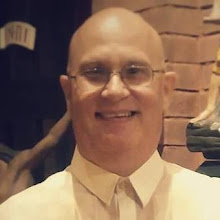One of the true jewels of the Kansas City arts scene is the Harriman-Jewell Series sponsored by William Jewell College. For 42 years, the series has brought many top names to the area including Luciano Pavarotti and Jan Peerce who made their professional recital debuts here. Not only top singers, but dancers, dance ensembles, orchestras and soloists are presented in concert.
On Fri Nov 10 the series presented the Moscow State Symphony in concert at the Folly Theatre. Pavel Kogin led the orchestra with soloist Stephan Jackiw as soloist. The program was solid, East European and Russian favorites: Smetana "Vltava", Tchaikovsky Violin Concerto and Dvorak Symphony # 9.
Unfortunately, the concert was held at the smallish Folly Theatre as the Lyric was occupied with the current production of Thomas' "Hamlet" and the Music Hall is undergoing reconstruction. The Folly is great for chamber and solo concerts but is a stretch for a full orchestra. It was obvious the orchestra was crammed on stage. The brass and basses were almost off the stage in back. This contributed to a bit of a constricted, hard sound.
Perhaps being so crowded contributed to the extraordinarily fast tempi in every piece. Kogan led a technically brilliant "Vltava", but I missed the atmosphere, especially in the "Moonlight: Dance of the Water Nymphs". Perhaps they were trying to stay afloat in the turbulent waters, as "The Moldau" flowed rapidly past Prague, sweeping all before it.
The Tchaikovsky Violin Concerto is of course one of the giants of the genre. Similar in scope and form to the First Piano Concerto, it literally pours forth themes and melodies, many appearing once never to be developed or heard again. Also, as in the Piano Concerto, its first movement is a grand allegro with a broad sweeping principal melody. The "Canzonetta" and Finale pale in scope but together perfectly balance the grandeur of the Allegro.
Stephan Jackiw is all but 20 yrs old and I predict will be a talent to watch. Again a brisk performance, I would have loved a bit of lingering over some of the lyrical passages, a bit less tension in the Canzonetta, and the cadenza was bit too showy and self-indulgent. But when he was allowed to linger a bit, a rich, sweet tone emerged from both the instrument and the performer's soul. Fiery, impassioned, technically brilliant and communicative, he made quite an impressive local debut.
The audience was mesmerized by his performance and even broke all decorum by giving him a standing ovation after the first movement Allegro. Perhaps a little too enthusiastic but indicative of his incredible technical ability and rapport with the audience. Not just a mere note spinner, I think with some seasoning, he will be a major figure in the violin world for the next generation. With his lean, gutsy playing I would love to hear him in the Bartok or Stravinsky Concertos. With a little more polish, the Beethoven or Dvorak would be in stellar hands.
The large orchestra was more than up to the spirited performance, yet kept its distance, letting the violin be the star.
The last half was the familiar Dvorak 9th. Again the brisk tempi ruined some of the more contemplative and atmospheric sections and smeared the tempo relationships of the movements. When the opening movement's "allegro molto" section is taken at the speed of light, where can you go with the even faster "molto vivace" scherzo? The Largo was more of an Allegretto (I kid you not) but did feature a lyrical and solid English horn solo. I may be spoiled, growing up as I did with the incomparable Kertesz performances, which in my opinion get everything right. Everything else pales in comparison.
The audience was rewarded with a Dvorak Slavonic Dance #2 (e-minor op 46) again played with technical brilliance. My ride was leaving so I missed the second encore, which I believe was by Glazunov.
Pavel Kogan (son of Leonid Kogan and Elizaveta Gilels sister of pianist Emil Gilels) has led the Moscow State Symphony since 1989 and has developed the ensemble in to a technically superb orchestra. It would be wonderful to have this same group record the Tchaikovsky with Jackiw, it would certainly be worth hearing again. Would not replace the Heifitz or early Perlman with Leinsdorf (which has some similarities to Jackiw's performance) in my collection but would certainly demonstrate the Concerto's future is in good hands.
Saturday, November 11, 2006
Subscribe to:
Post Comments (Atom)



No comments:
Post a Comment